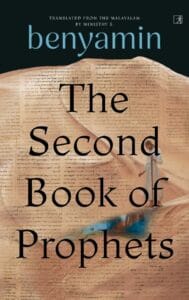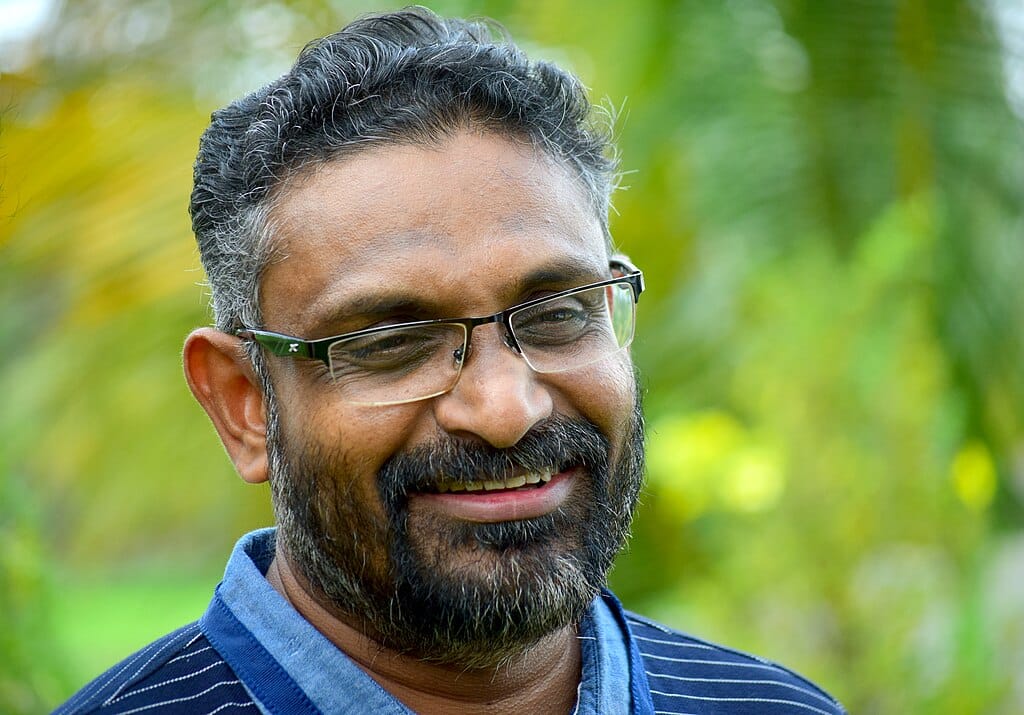It’s not every day one comes across a new novel about Jesus as a social activist, least of all one in translation from Malayalam. So Ministhy S’s recent translation of renowned Indian writer Benyamin’s 2007 novel, The Second Book of Prophets, is unexpected, to say the least. One need not know much about biblical stories or be religious—of any faith or none at all—to understand this story, although readers with some knowledge of the New Testament will be familiar with the characters and the plot. Yet as a novel, it’s engaging and even thrilling.
The story begins in Hebron when Peter finds shelter in the home of Lazarus. He’s surprised by the generous hospitality of Lazarus, who was a Kohen, the priestly caste in Judaism.
Peter felt both pride and curiosity at the way the household treated its guests. To think that such great men existed among the Jewish priests! Usually, if one ended up in such a house, the hosts served food only after seating you at a distance. But here, they shared food as if he were their own brother.
At Lazarus’s house, Peter also meets Didymos, who becomes known as Thomas the Apostle. The two guests leave and part ways. Around this time John the Baptist is imprisoned by the Romans who rule under Pontius Pilate. When Pilate speaks to those in his inner circle regarding the fate of John, he does so with plans to pit different Jewish sects against one another.
Jesus enters the story not as the son of God, but rather as a wandering rabbi, descended from King David. When he reaches Judea, he imagines he’d find many people there to listen to John the Baptist. At that time, Jesus doesn’t know about John’s arrest and imprisonment by the Romans. He eventually finds out and feels despondent about the future. He thinks to himself, not about religion but about home:
What sort of life is mine? So many hopes, all futile. In every new sliver of hope, a dream of life blooming again. But it withers away suddenly. Why does nobody understand me? I have a great dream in my heart: the Jew’s own country. I would have given it to those who followed me. But who…?

Jesus goes on to gain followers. He attends Lazarus’s synagogue and leads a service there. But Jesus later becomes frustrated with Lazarus. When Jesus suggests that Lazarus’s sister marry Thomas, who is Greek and not Jewish, Lazarus gets upset and explains that his sister cannot marry someone outside her religion. Jesus is not happy with this exclusion and makes a point to invite a leper—someone not allowed into a synagogue—to his own Passover seder. Word soon gets back to Jesus that Lazarus has plotted against him.
Pontius Pilate puts Jesus on trial and at the very end of the story, when Jesus is crucified, Peter and an unnamed passerby engage in a conversation about Jesus. The language in this part seems especially contemporary and therefore accessible to the average reader.
Judas went to fight with the Benjaminites, accusing them of being behind Jesus’s crucifixion. I think he went totally crazy. He was publicly flogged for creating a ruckus in Pilate’s palace. Would any sensible person go and pick up a fight with the Benjaminites after that? What was their fault if the Romans crucified your rabbi, eh? They, too, lost one of their men, didn’t they?
The novel is short and tells the story of an empathetic Jesus who diverted from the rules of Judaism back then and devoted his life to the poor and the ill. Ministhy S’s translation makes for a story that’s easy to follow.


You must be logged in to post a comment.